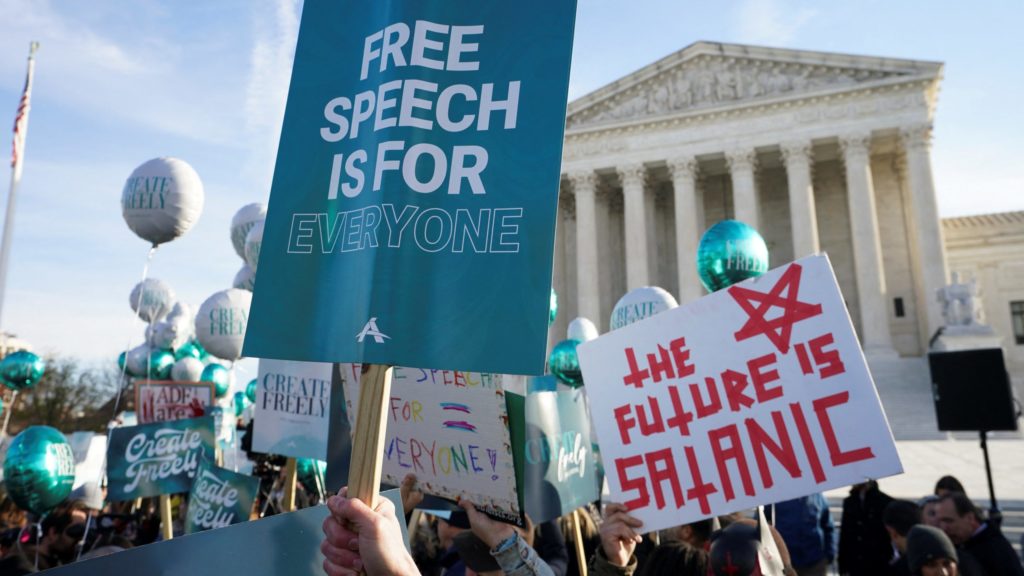One of the most attractive features of the Supreme Court in the last several years has been its generally friendly view of religion. One of the least attractive has been the open hostility of secularist sources faced with this development.
I say this thinking especially of what will probably be the most important religion-related case of the court’s present term. It’s called 303 Creative LLC v. Elenis, and it concerns a Colorado website designer who refuses to design wedding sites in celebration of same-sex unions as Colorado nondiscrimination law would have her do.
According to the website designer, Lorie Smith, she has no objection to doing other work for such couples, and if it’s a wedding site they want, she is quite prepared to refer them to another designer. The problem for her is expressing approval. Smith, a practicing Christian, finds same-sex marriage to be in conflict with the Bible and she draws the line at creating a site that celebrates it.
Represented by a Christian Legal Advocacy Group called the Alliance Defending Freedom, Smith brought her case to the Supreme Court on appeal from a 2-1 ruling against her by the U.S. Court of Appeals for the 10th Circuit.
The Supreme Court heard oral arguments last December, and a decision could be forthcoming any time between now and next June, although later rather than sooner is probably the best bet. Most court observers expect a 6-3 decision in favor of Smith, with the court’s six conservatives delivering another religion-friendly ruling.
Over on the secular left, the chorus of outrage has already begun. I was particularly struck by a short piece by Erwin Chemerinsky, dean of the University of California Berkeley law school, who warns darkly that the Supreme Court is gearing up to rule that “free exercise of religion” justifies “an exemption from anti-discrimination laws.”
There are several things wrong with that, not the least being that although Smith’s case does involve a religious interest, the case as argued before the Supreme Court is not about free exercise of religion but freedom of speech, and almost certainly it will be decided that way. For at the time the Supreme Court accepted the case for review, it specifically — and publicly — instructed the lawyers to argue only that question. Dean Chemerinsky wasn’t watching, perhaps?
Writing in the Sacramento Bee, the dean also tips his hand to a degree not common among those who share his point of view. Reciting secularist dogma, he writes, “Religion’s place should be in our private lives, homes, and houses of worship.” In this perspective, virtually any extension of the Constitution’s guarantee of religious free exercise beyond the private sphere violates Thomas Jefferson’s metaphorical “wall of separation” between church and state.
Chemerinsky is hardly alone. In an overview of the Supreme Court’s current term, Ruth Marcus, an associate editor of the Washington Post editorial page who used to cover the court for that newspaper, said the justices “dismantled the wall of separation” last term and were making ready to do more of the same this time in 303 Creative.
One could go on naming names and quoting quotes, but the point should be clear: a lot of people who undoubtedly consider themselves to be champions of free speech and individual rights see no reason not to trample on the free speech and individual rights of others deemed guilty of what constitutional law authority Hadley Arkes calls the “underlying sin” of harboring “an adverse moral judgment on the homosexual life.”

